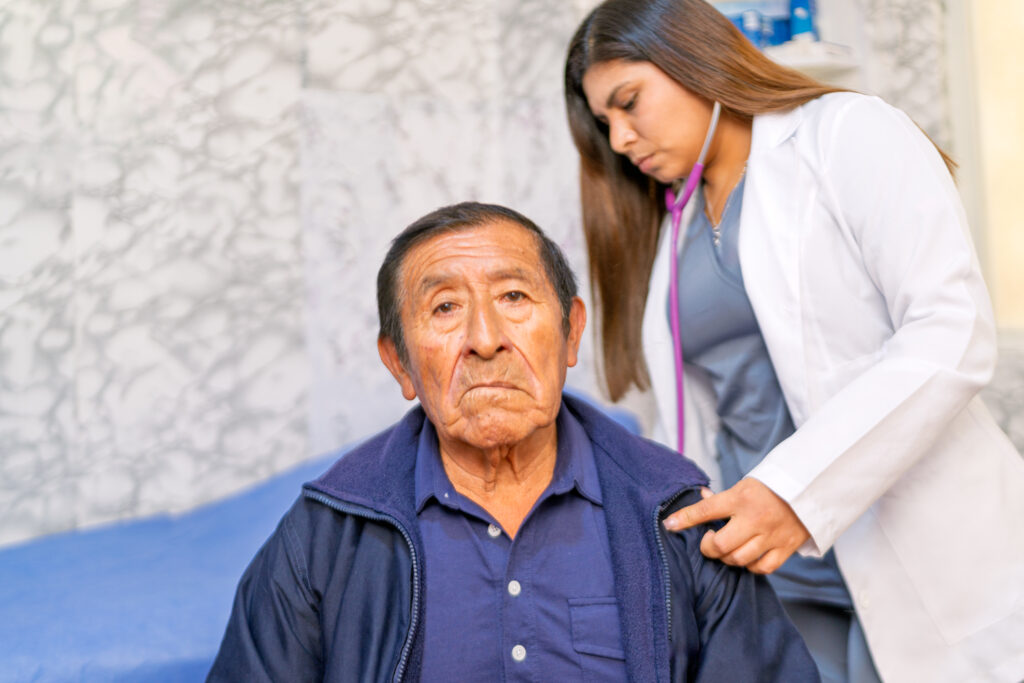As we looked across our health system in the past few months, the number of case management vacancies is so sad.
EDITOR’S NOTE: Mary Beth Pace is the vice president of care management at Trinity Health.
The COVID-19 pandemic has hit the whole healthcare system very hard. Physically and emotionally, we are tired, just tired.
Is “tired” the right word? Probably not, but most of us lack the ability to think beyond a word that can describe what this has done to our healthcare staff.
We have heard all of the news about frontline workers: nurses and respiratory therapists, environmental services, dietary staff, physicians. Along with those, there is another group that not many have identified with or worried about, and those are our case managers (CMs) and clinical social workers (CSWs).
I call them out specifically not to disregard the rest of the workforce, but to remind us all what it is they do in their daily work to help and advocate for the patients in our hospital beds – and the price we are paying because of unrealistic expectations and demands.
Case managers and utilization management (UM) staff are still having to document to support the level of care their patients are receiving. Centers for Medicare & Medicaid Services (CMS) regulations waived the requirement for a UM committee during the public health emergency (PHE), but did not put a lengthy stop to audits that their contractors perform, or the audits that the insurance companies perform.
Because the audits continue, the work never stopped for these teams. Many of them who have an RN license were also asked to go back to the bedside during the busiest times, or were taking furloughs to offset the cost of doing business in the early days. The work did not stop, but the incomes, for so many, did.
While we appreciate those insurance companies that waived some of the rules around authorization, they did that for post-acute transfers during second and third waves, and only for acute care during the first wave. But remember the audits I mentioned? Those came fast and furious once that surge settled a bit last summer.
Regarding waivers of post-acute transfers: ask any case manager or social worker, and they will tell you the difficulty involved in transitioning patients out of acute care today. It isn’t the process of prior authorization that is stopping the move, it is the ability of the skilled care facilities to staff their own beds in order to accept new patients.
Hospitals are still working in the fee-for-service world, so guess what else is having an impact on overall stress for our case managers and social workers? Length of stay (LOS). The LOS for just about every organization has increased dramatically, not only for those patients with COVID, but also for those patients who avoided care for a while because they were uncertain about coming to the ED.
There is no edit to check if the patients in a certain DRG avoided care during this pandemic, or came in five times more ill than they should have been if they were seeking care properly. All of the outreach we can do in population health is not going to catch every patient who needs us. Sure, we get to most, but we don’t have the staff there to get to all.
As we looked across our health system in the past few months, the number of case management vacancies is so sad. We already were not staffed to any applicable standard prior to the pandemic, and now we are in critical need. I know that there are staffing agencies out there, and I really appreciate that, but the fact of the matter is this: we are financially and physically strapped, so getting approval for this type of rich resource is difficult at best.
What would help us help them?
I would start by appealing to CMS:
- Please stop all audits of patient records for medical necessity during this pandemic.
- Push your Medicare Advantage product lines to do the same.
- Look at the GMLOS for our DRGs and change them, change the reimbursement for them, and give these teams a break.
- Figure out a way to get staffing back in the skilled care facilities. This crisis could be the end of so many of them. Or there may be a need to think creatively about congregate care settings.
- Incentivize the beneficiaries to seek earlier treatment. I don’t know how; I just know it works.
In summary, have you told a CM or SW how much you appreciate what they do? Small gestures go a long way.
Programming Note: Listen to Mary Beth Pace next Monday, Feb. 14, 10 Eastern on Monitor Mondays.






















